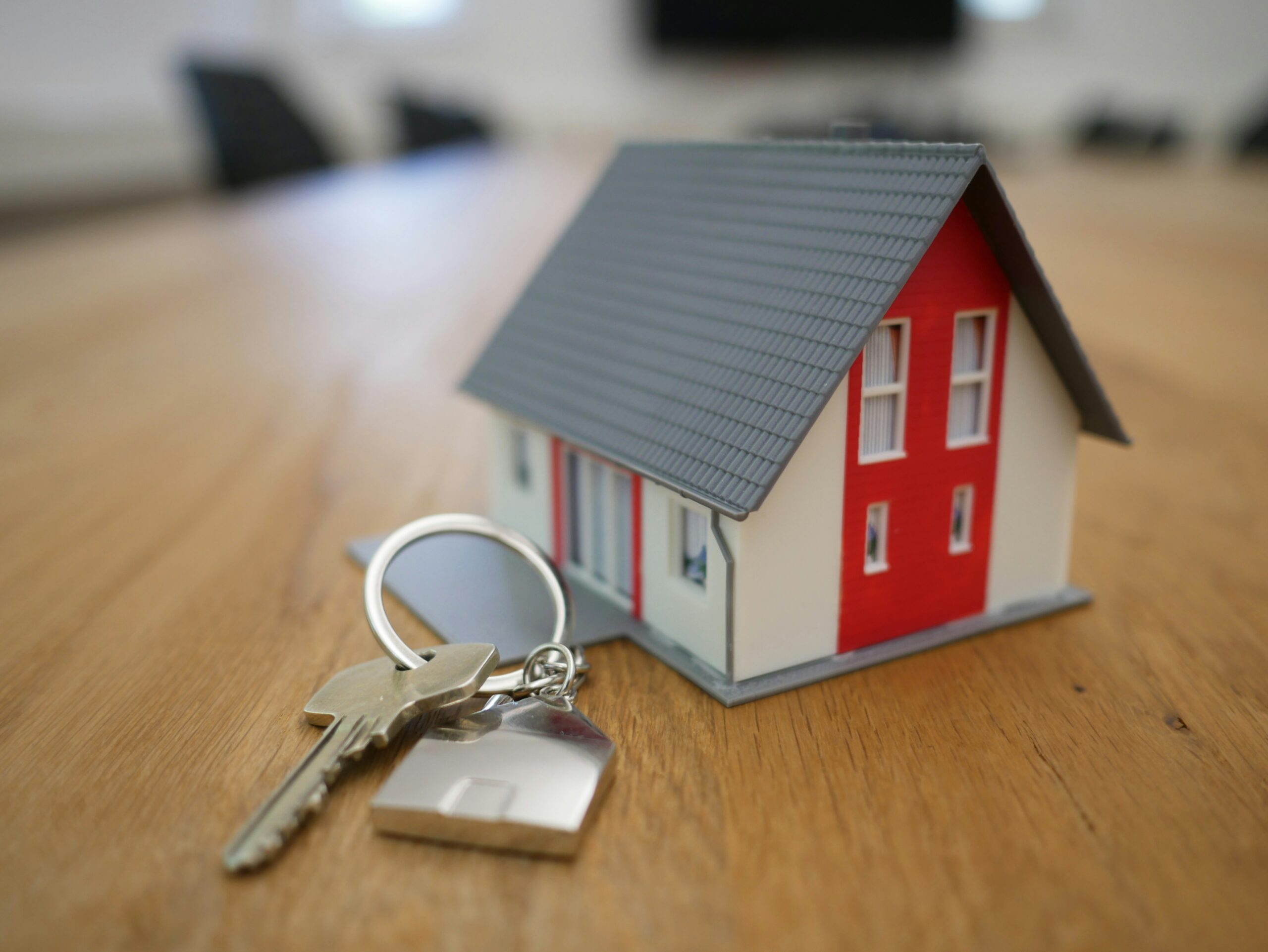In today’s uncertain world, being prepared for any situation is more important than ever. Whether it’s a natural disaster, a medical emergency, or even just a power outage, having the right tools and mindset can make all the difference. So, what can you do as an individual to increase your level of preparedness? This article explores practical tips and strategies that you can implement in your daily life, empowering you to be ready for whatever comes your way. From creating emergency kits to learning essential skills, discover how you can become more prepared and confident in facing unexpected challenges.
Develop an Emergency Plan
Identify potential emergencies in your area
To increase your level of preparedness, it is essential to first identify potential emergencies that could occur in your area. Research and understand the types of emergencies that are most common in your region, such as natural disasters like hurricanes, earthquakes, or floods, or man-made emergencies like fires or chemical spills. By knowing the specific risks in your area, you can tailor your emergency plan to address them effectively.
Establish meeting points and emergency contacts
When emergencies strike, it is crucial to have a designated meeting point where you and your loved ones can gather to ensure everyone’s safety. Choose a central location that is easily accessible and familiar to all family members. Additionally, compile a list of emergency contacts, including local authorities, neighbors, family members, and friends who can provide assistance or support during a crisis. Share this information with your family and keep a copy in your emergency kit.
Plan evacuation routes and alternatives
In the event of a major emergency, having well-defined evacuation routes is paramount. Identify multiple routes to exit your home or neighborhood safely and efficiently. Consider different scenarios and map out primary and alternative routes, taking into account road closures, traffic patterns, and potential hazards. Practice these evacuation routes with your family to ensure everyone knows the plan and can evacuate quickly if necessary.
Include pet provisions in the plan
If you have pets, it’s essential to include them in your emergency plan. Make sure to have a plan in place for their safety and well-being during a crisis. Identify pet-friendly shelters or boarding facilities in your area, and include provisions for their food, water, medications, and comfort items in your emergency kit. Ensure your pets are properly tagged and have up-to-date identification in case they become separated from you during an emergency.
Cultivate Self-Sufficiency
Learn basic survival skills
To increase your level of preparedness, it is beneficial to learn basic survival skills. These skills can include starting a fire, constructing a temporary shelter, identifying edible plants, and understanding first aid techniques. By equipping yourself with these skills, you will be better prepared to handle emergency situations where access to modern conveniences may be limited or nonexistent.
Learn to grow and store food
In times of crisis, being able to grow and store food can be invaluable. Consider starting a small garden or learning about container gardening to grow your own fresh produce. Additionally, educate yourself on proper food storage techniques to extend the shelf life of perishable items. Canning, drying, and freezing are all methods that can be used to preserve food for extended periods. Building a stockpile of non-perishable food items is also advisable.
Know how to purify water
Access to clean water is essential for survival. In emergency situations, the usual water supply may become contaminated or unavailable. It is crucial to know how to purify water to make it safe for consumption. Methods such as boiling, using water purification tablets, or investing in portable water filters can ensure a clean water supply during emergencies. Educate yourself on these purification methods and consider keeping water purification supplies in your emergency kit.
Develop basic home repair skills
Being self-sufficient in home repairs can prove valuable during emergencies. Learn basic home repair skills, such as fixing leaks, repairing broken windows or doors, and maintaining essential utilities like plumbing and electrical systems. These skills can help you quickly address any minor damages caused by emergencies, ensuring your home remains a safe and functional environment for you and your family.

Maintain Regular Health Checks
Regular doctor visits
To maintain your overall health and well-being, it is crucial to schedule regular visits with your healthcare provider. Annual check-ups and routine screenings can help detect potential health issues early on and allow for appropriate interventions. Discuss any specific concerns you may have regarding your health and explore preventive measures or treatments that may be available to you.
Keep up-to-date with vaccinations
Vaccinations play a vital role in preventing the spread of diseases, especially during emergencies or outbreaks. Ensure that you and your family are up-to-date with recommended vaccinations, including those for common illnesses such as influenza, measles, and tetanus. Regularly consult with your healthcare provider to stay informed about any new vaccines or updates to your immunization schedule.
Monitor chronic health conditions
If you have a chronic health condition, it is essential to closely monitor and manage it during emergencies. Keep a supply of necessary medications and medical supplies for your condition in your emergency kit. Consider discussing an emergency plan specific to your condition with your healthcare provider, ensuring you have a solid understanding of how to manage your health during a crisis.
Physical Fitness
Regular exercise
Engaging in regular exercise is crucial for maintaining physical fitness and overall health. It strengthens your body, improves cardiovascular health, and increases endurance and flexibility. By incorporating a variety of exercise routines into your daily life, such as walking, jogging, cycling, or strength training, you can enhance your physical well-being and be better prepared to handle the demands of emergencies.
Maintain a healthy diet
A balanced and nutritious diet is essential for optimal health and well-being. Consume a variety of fruits, vegetables, whole grains, and lean proteins to ensure your body receives the necessary nutrients. Limit your intake of processed foods, sugary snacks, and unhealthy fats. A healthy diet not only supports your physical fitness but also strengthens your immune system, enabling you to better withstand the challenges posed by emergencies.
Take part in sports or outdoors activities for fitness
Engaging in sports or outdoor activities can be an enjoyable way to stay physically fit and build resilience. Participate in activities such as hiking, biking, swimming, or team sports that promote physical fitness and social interaction. These activities not only improve your physical health but also provide opportunities to develop skills and build relationships that can be valuable during emergencies.

Learn First Aid and CPR
Attend First Aid and CPR classes
First Aid and CPR classes can provide you with life-saving skills that may prove indispensable during emergencies. These courses teach you how to assess and respond to injuries, perform basic CPR, and provide immediate care until medical professionals arrive. By gaining this knowledge and receiving proper training, you can confidently respond to emergencies and potentially save lives.
Keep first aid kits at home, work, and in the car
Having well-stocked first aid kits readily available is vital for addressing minor injuries and providing immediate care. Keep a first aid kit in your home, workplace, and car, ensuring they are easily accessible and regularly updated. Familiarize yourself with the contents of each kit and know how to use them effectively. Having these kits conveniently located allows you to respond promptly in case of an emergency.
Update your skills regularly
Skills in first aid and CPR should be regularly refreshed and updated to ensure you are equipped with the latest techniques and information. Consider participating in refresher courses or attending advanced training sessions to enhance your skills and stay up-to-date with any changes in emergency medical practices. By doing so, you can maintain your confidence and effectiveness in providing immediate assistance during emergencies.
Financial Preparedness
Keep emergency cash or credit on hand
Financial preparedness is an essential aspect of increasing your overall level of preparedness. Keep a supply of emergency cash or maintain available credit to cover unexpected expenses that may arise during emergencies. Access to funds can provide flexibility in obtaining essential supplies, accommodations, or transportation when traditional payment methods may not be accessible.
Save regularly for emergency expenses
Building an emergency fund is a prudent financial practice that can provide stability during challenging times. Allocate a portion of your income towards savings specifically designated for emergency expenses. Aim to save enough to cover at least three to six months’ worth of living expenses. Having a financial safety net allows you to navigate emergencies without the added stress of financial strain.
Invest in insurance
Insurance provides protection and financial support in times of adversity. Review your insurance policies, such as homeowner’s or renter’s insurance, health insurance, and auto insurance, to ensure they adequately cover potential emergencies. Consider additional coverage options that may be relevant in your region, such as flood insurance or earthquake insurance. Regularly update your policies to reflect any changes in your circumstances or needs.

Develop a Support Network
Establish a trusted group of nearby friends or relatives
Building a support network of trusted friends or relatives who live nearby can significantly enhance your level of preparedness. These individuals can provide support, assistance, and a sense of community during emergencies. Establish relationships with neighbors and create a system for mutual aid and communication. Designate specific roles and responsibilities within your network to ensure everyone has a clear understanding of how to support each other during emergencies.
Develop a plan with your support network
Collaborate with your support network to develop a comprehensive emergency plan that includes coordination and communication strategies. Identify designated meeting points, establish methods of contact, and determine how you will assist each other in times of need. By working together and pooling your resources, you can create a strong support system that increases your collective level of preparedness.
Regular check-ins with your network
Maintaining regular communication with your support network is critical for staying informed and connected during emergencies. Schedule check-ins with your network members to exchange information, address any concerns or needs, and ensure everyone’s well-being. Regular communication fosters a sense of unity, making it easier to respond effectively in times of crisis.
Mental Preparations
Develop coping mechanisms for stress
Emergencies can be physically and emotionally taxing. Developing effective coping mechanisms for stress is essential to maintain mental well-being during challenging times. Explore relaxation techniques, mindfulness exercises, or engaging hobbies that help you manage stress and anxiety. These practices can positively impact your mental health and enable you to remain calm and focused during emergencies.
Understand the mental impact of emergencies
Being aware of the potential psychological impact of emergencies is crucial for preparedness. Understand that emergencies can lead to heightened stress, fear, and emotional distress. Educate yourself about common emotional reactions and the importance of self-care during and after emergencies. Recognize when additional support, such as professional counseling, may be necessary and be proactive in seeking assistance if needed.
Professional counseling if needed
In some cases, the emotional toll of emergencies may require professional help. If you find yourself struggling to cope with the aftermath of a crisis or experiencing prolonged distress, seek support from a mental health professional. They can provide guidance, counseling, and strategies to address any trauma or emotional challenges you may be facing. Remember, seeking help is a sign of strength and can significantly contribute to your overall well-being.
Stay Informed
Monitor local news and weather
Staying informed about local news and weather updates is crucial for maintaining situational awareness during emergencies. Regularly monitor trusted news sources and weather reports for information relevant to your area. Stay alert to warnings, alerts, or evacuation orders, and promptly take necessary actions as advised by local authorities.
Understand community warning systems
Familiarize yourself with the community warning systems implemented in your area. These systems may include sirens, text alerts, phone calls, or dedicated emergency radio channels. Understand the different alarm sounds and signals used by these systems and know what actions to take when you hear them. Being aware of the warning systems enables you to respond promptly and protect yourself and your loved ones.
Follow trusted sources on social media
Social media platforms can be valuable sources of information during emergencies, but it’s important to use discernment in choosing which accounts and sources to follow. Identify reputable organizations, government agencies, and local authorities that provide reliable and timely updates. Be cautious of misinformation and rumors that can spread quickly on social media and verify information from trusted sources before taking action.
Create Survival Kits
Make a kit for your house
Having a well-equipped survival kit at home is essential for ensuring you have the necessary supplies to sustain yourself and your family during emergencies. Your home survival kit should include essentials such as non-perishable food, water, a first aid kit, flashlights, batteries, a battery-operated radio, extra clothing and blankets, a multipurpose tool, and personal hygiene items. Customize your kit to meet the specific needs of your household and regularly check and replenish supplies to keep it up to date.
Create a mobile ‘go-bag’ with needed supplies
In addition to a home survival kit, having a mobile ‘go-bag’ is crucial in the event of a sudden evacuation. This bag should contain essential items that you can quickly grab and carry with you, ensuring you have the necessary supplies while on the move. Include items such as a few days’ worth of clothing, personal documents, medications, a portable phone charger, emergency cash, and a list of emergency contacts. Store this bag in a readily accessible location and periodically review and update its contents.
Include food, water, medications, and other personal needs in the kit
When assembling your survival kits, ensure you include an ample supply of food, water, medications, and other personal needs. Your food supply should consist of non-perishable items that do not require cooking or refrigeration. Water should be stored in clean and tightly sealed containers. Additionally, have an updated and easily accessible stock of necessary medications for all household members, as well as hygiene items such as hand sanitizers, masks, and disinfectants. Regularly check and rotate these supplies to maintain their freshness and readiness.
By following these comprehensive steps, you can significantly increase your level of preparedness for emergencies. Remember, preparedness is an ongoing process, and it is essential to regularly review, update, and practice your emergency plans and skills. By taking proactive measures and cultivating self-sufficiency, you can face emergencies with confidence and ensure the well-being of yourself and your loved ones. Stay informed, stay prepared, and stay safe!

